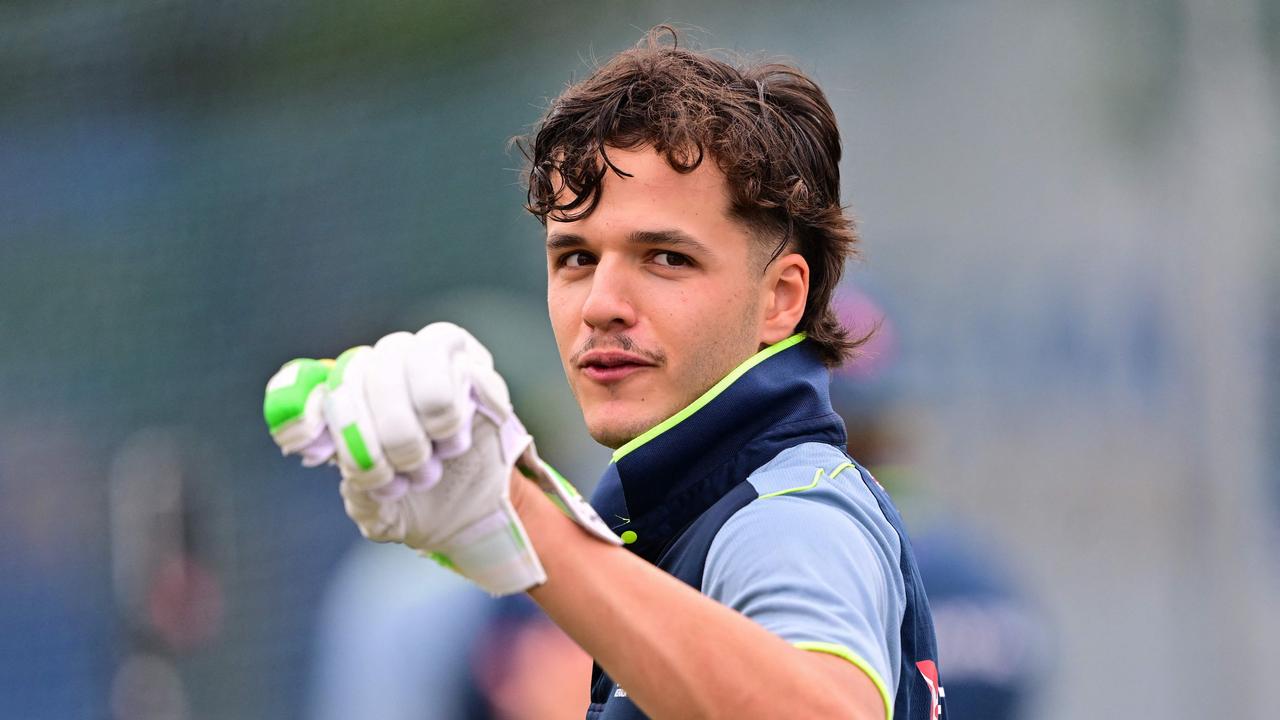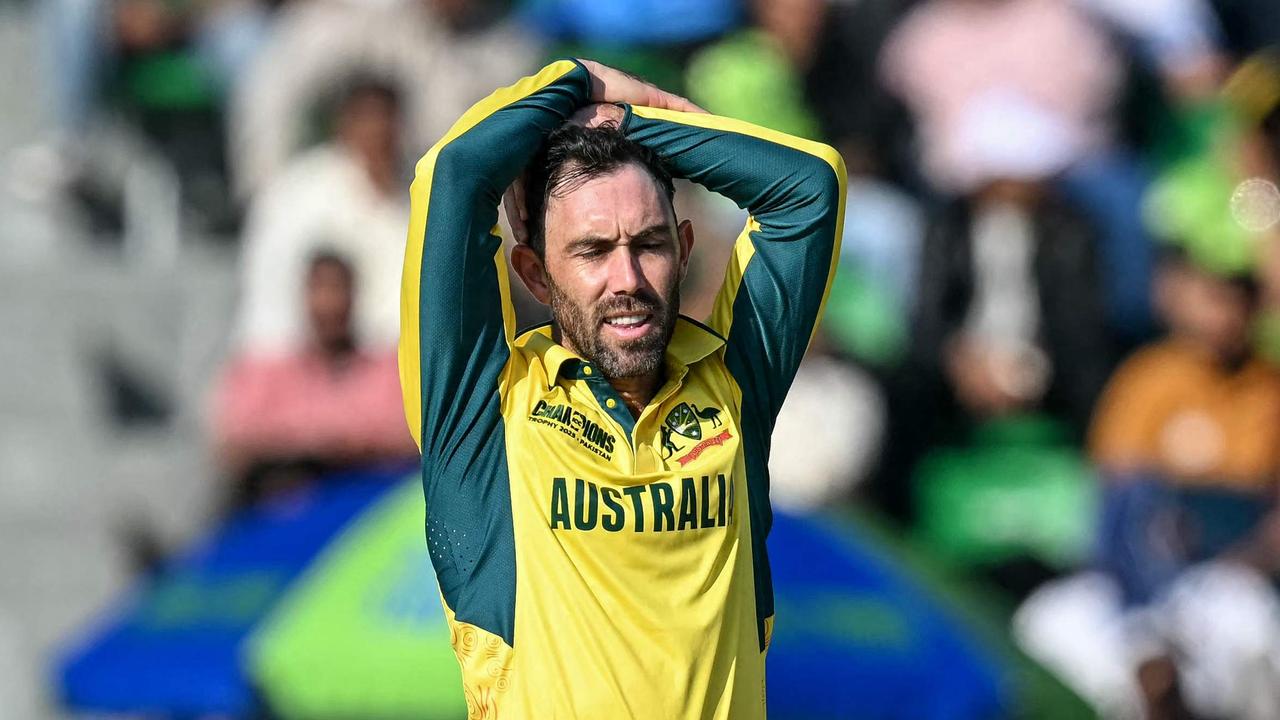Cricket World Cup: Aussies playing confusing game with Shane Watson and Mitchell Marsh
THE continued debate over Shane Watson’s future is tagged Watto Lotto but that term now has special relevance because that’s what it is — luck of the draw.
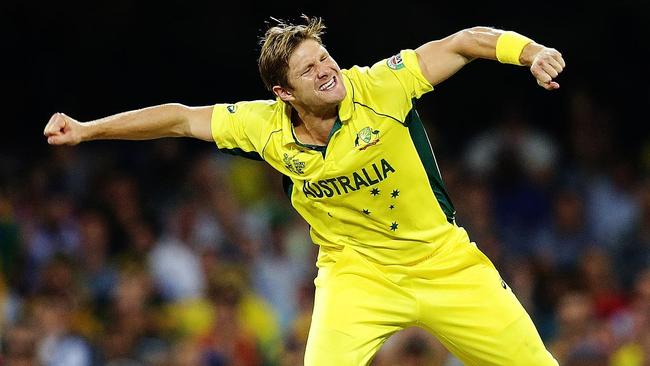
Cricket World Cup
Don't miss out on the headlines from Cricket World Cup. Followed categories will be added to My News.
SHANE Watson’s fate this World Cup could hinge on which selector is on duty for each particular match.
His recall in Sydney highlighted a potential flaw in the selection process that a decision as momentous as a senior player’s future is determined as whimsically as whoever happens to be calling the shots in the selection room that day.
The continued debate over Watson’s future is often tagged Watto Lotto but that term now has special relevance because that’s basically what it is — the luck of the draw.
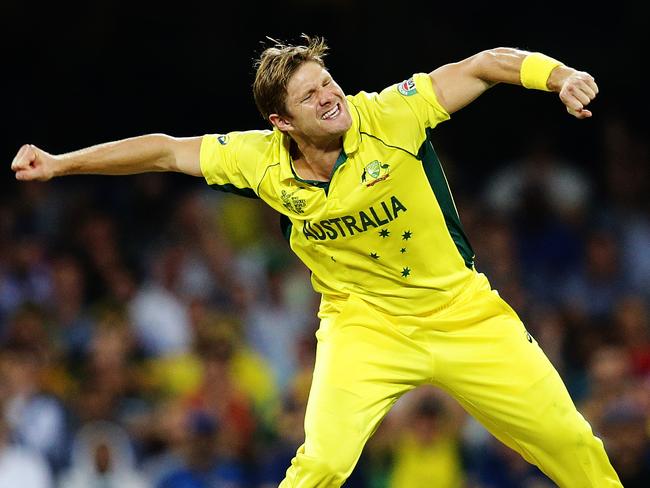
WHAT’S WRONG WITH MITCH JOHNSON?
PLAYER RATINGS: BIG SHOW’S PERFECT 10
Rod Marsh made the bold, line-in-the-sand call to axe an underperforming Watson in Perth, as he was the selector on the ground.
Mark Waugh decided to recall Watson four days later for his bowling experience, as he was the selector on duty in Sydney.
Can we presume it’s good news then for Watson and bad news for the unlucky Mitchell Marsh that Waugh is again the selector on duty for this Saturday’s match against Scotland in Hobart?
It may not hurt Watson’s chances either that part of Waugh’s job description as selector was based on his extensive knowledge of one-day cricket leading into a World Cup.
But what happens to the balance of the team if the chairman, Rod Marsh, comes back on board as the selector on duty during the finals’ stages?
After all, if Watson and Mitchell Marsh are being picked “horses for courses” as Cricket Australia have explained — it might be hard to leave Marsh out of a final at the MCG, given he took five wickets at that venue in the tournament opener.
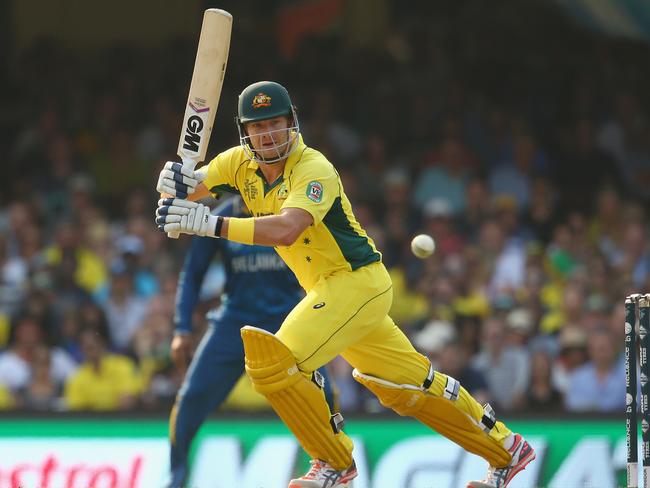
It’s understood that the selectors themselves aren’t completely sold on the current model that dictates that the man on the ground makes the final call.
The logic is that if the team is on tour overseas, time differences mean that the selector travelling with the team needs the authority to make quick decisions.
Fair enough.
But this is a home World Cup — the sport’s showpiece event — and Watson is no fringe player.
Dumping him was always going to be a landmark moment, and Rod Marsh treated it as such by saying Watson’s only immediate avenue back was through injury or poor form to a teammate.
Four days later and Watson is back for a legitimate but completely different reason — the conditions of the SCG pitch.
Waugh owned the decision in his commentary on Fox Sports.
Curiously, he indicated that Marsh in his media statement at the time may have over-exaggerated Watson’s plight and also suggested he also didn’t wholeheartedly agree with his chairman’s call in the first place.
“I wouldn’t say I totally disagreed with it,” was Waugh’s answer when grilled on Fox Sports.
“Rod Marsh maybe didn’t choose his words right there, but I picked the team (on Sunday) to win this game.
“I thought that was the best team on this surface against this particular side.
“I wasn’t in Perth, it was a tough one … it was a pretty tough call either way. I was happy either way probably.
“It was a real 50-50 call I thought in Perth.
“I was happy with how the team was selected, Rod Marsh in consultation obviously with Darren Lehmann and obviously Michael Clarke in Perth they came up with the team and I didn’t have a problem with that.”
Waugh explained himself well and it’s perfectly healthy for there to be differences of opinion on the panel.
But the fact selectors were on a different page with Watson exposes a problem, which could plague the rest of Australia’s World Cup campaign.
Watson smashed a beautiful 67 with the bat, but if he was recalled for bowling experience — he didn’t exactly get a pass mark by going at greater than 10 an over.
Australia needs to be very careful they don’t over-stir the broth.
At the moment selectors can hide behind the fact they’re winning, but they should also be aware of the impact confusion is having on the players.
For his part, captain Michael Clarke wants nothing to do with the debate — “I’m not getting hold of that hook”.
But Clarke did emphasise that he’s comfortable with the level of consultation he gets on decisions as skipper.
“It’s been very consistent the whole way through,” he said.
The consistent line from Cricket Australia is that it takes 15 players to win a World Cup.
But that ignores the fact Australia’s past two World Cup triumphs in 2007 and 2003 were built on maintaining a settled XI throughout the tournament.
Mitchell Johnson didn’t get one game in ’07.
Australia’s in a far stronger position than they were in 1992 when they last hosted a Cup, but it was selection machinations that also played a role in destabilising that campaign.


